Photographs: Vaihayasi Pande Daniel/Rediff.com
Vaihayasi Pande Daniel reports on the twists and turns of the high speed, crazy literature festival
It is like reading a manic, exotic novel. A luridly colourful novel which switches genres ever so quickly.
Yes, your first dose of the Jaipur Literature Festival 2013, which began on Thursday morning at the 18th century whitewashed Diggi Palace, with Buddhist chanting, is like following the twisting, turning events of a high speed, crazy paperback, with each author present at the festival, adding to the voluminous, unexpected narrative being created.
In a chilly morning session, there was a bit of the elegant Zoe Heller on writing technique; a quiet, mild M A Farooqui (Between Clay and Dust) on pahalwans and courtesans of Lahore and crusty Jamil Ahmed (Wandering Falcon) on the fragility of the tribes of frontier Pakistan.
Fast forward to Pico Iyer figuring out the Man Inside His Head under the noon day sky. Discussing the technique of bladder stone removal in the Middle Ages with Dr Abraham Verghese under the slanting rays of the afternoon sun. And deeply negative as well as equally positive thoughts for India's future at sunset from strident Binayak Sen, clear-eyed Harsh Mander and upbeat Rohini Nilekani. And in between snippets from an angry Kiran Bedi, a charismatic Shashi Tharoor and an intense Pramod Kumar KG on royal daguerreotypes and what they show you about Indian court life.
You are literally lunching at a glorious feast of literature.
The day, but, of course, clearly belonged to a philosopher. His Holiness the 14th Dalai Lama drew huge audiences with his rock star charm. Looking and sounding decades younger than his 77 years, his unforgettable smile and humour mock himself and life and the world in equal measures. But his dialogue instantly touches a chord in your soul. Simple, commonsense thoughts put across with such appeal and dignity.
There is so much to take away from each author and each session that you are keen to sort out the tangled bundle of thoughts you gained, and took home with you, into organised lessons to ponder over.
Click on NEXT for more...
The colourful world of Jaipur Lit Fest
Image: Author Jamil AhmedPhotographs: Vaihayasi Pande Daniel/Rediff.com
Author Jamil Ahmed's different take on the tribes of Pakistan was an eye-opener.
For most of us, the frequent news reports on the strong tribal hold that exists in the Swat province of Pakistan and in Baluchistan generate negativism.
But Ahmed, who was a Pakistani civil servant in Baluchistan for decades, explains this way of life with far more empathy and explains how it is being mutated and pressured into extinction by the country's political system and Western forces that operate in that area.
Modern governments have no use for tribal codes.
"Tribes are the basic building block of human civilisation. Every form of collectivity -- the feudal system, the nation state -- has tribes as its adversary. Every system is jealous and envious of the tribe. Even today you see a lot of anger for tribes, for no reason. Tribes have been on the defensive for long. Every type of collectivity has a bit of tyranny built into it. Even between husband and wife, there is a little bit of tyranny. Tribes, as a system, have the least amount of tyranny. Are our systems more effective than tribal systems, not today's tribal systems but 50 years ago? Illiterate people are not uneducated people," he said.
Another point to ponder from Ahmed was his belief that every person has something to report that is of interest and how important it is for each person to get down to offering his story, his views through writing. Ahmed penned his collection of short stories, which reflected the complexity of tribal Pakistan --Wandering Falcon -- some 35 years before he published it.
Click on NEXT for more...
The colourful world of Jaipur Lit Fest
Image: Akash Kapur with Pico IyerPhotographs: Vaihayasi Pande Daniel/Rediff.com
Young author Akash Kapur (whose Becoming India has received good reviews) discussed Pico Iyer's last book The Man Within My Head with him. This book focuses on Pico's obsession with British author Graham Greene and draws parallels between his life and Greene's.
Pico wryly comments that he wishes the man in his head had been someone more exciting, like perhaps James Bond, but is happened to be Greene. While introducing Pico, Kapur said, "He divides his time between a monastery in California and rural Japan with airports around the world."
Iyer endeavoured to put across "the mad thoughts that go through a writer's mind" when he explained how much thought and months of time he invested in coming up with the subtitle for his book and the work he invested in slimming the contents of his book to make it merely mirror his essential message.
He muses, "Many years ago I thought writing was about substance. But the more I try myself, the more I see it is about structure".
"In this book, because I suppose I have lived in Japan for 25 years -- one of the beautiful things about Japan is that it is a culture that lives in silence. To some extent everything that happens in Japan happens in the empty spaces, it is not the words that are important, but the intonation and what is being pushed down... in this case (his book), architecturally, to use your word, I wrote maybe 150 different passages, some entirely fiction, some not. I almost literally put them down on my little desk in Japan and then saw how many I could take out, while still make an elliptical imaginative kind of structure...
"All of you know, even if you have never been to Japan, that the power and electricity of that aesthetic -- (like when) you walk into a room and there's just a single scroll on a tatami mat. Because it is the opposite of the Indian aesthetic, which is about completion and amplitude -- (like) and getting as much into the space in the Diggi Palace today.
"In Japan if this literary festival were taking place: that space (he points) would be silent and that stage would have nothing on it. And that would mean you would be attending to just this glass of water. The fewer things there are in a room, the more you bring to what is left. So that was what I was trying to do by taking out as much as possible (was) to charge what is left. It sounds very pretentious. These are the mad thoughts a writer has when he is sitting alone in rural Japan unable to speak Japanese for years on end."
Click on NEXT for more...
The colourful world of Jaipur Lit Fest
Image: At the Jaipur Lit FestPhotographs: Vaihayasi Pande Daniel/Rediff.com
Iyer, dressed in a suit, is a slender, diminutive man. He talks in a precise, elegant, but vivid manner -- perfect British accent -- in a voice whose sharp pitch is unexpected. Iyer has described himself as a global village on legs -- given the myriad influences he had while growing up.
Yet, according to Kapur, Iyer consciously has very little to do with technology. He has not updated his e-mail id (it is still an AOL one), he does not Skype and has never used a cell phone in his life.
Iyer says after spending years in Manhattan working for Time magazine, he felt the need to de-clutter, Japanese style, so he had less in his life and could give better attention to the few things he had.
Man Within My Head led Iyer to better insights into his own father and that message too is intertwined in this memoir (of sorts). On that he explains, "There is not much about my father in this book, but what intrigues me more is about the type of thing -- which is that most of us, males in this audience know, that when you are young, to define yourself, make yourself, to establish who you are in the world, you have to go away from home, in the opposite direction from your family and become something radically different. And then 20 years later you listen to your voice on an answering machine or see your face in the mirror and you realise you have become your father. In women's case you also become your mother. You rebel against your parents, until you become them. I think that's something that is intriguing to all of us."
Click on NEXT for more...
The colourful world of Jaipur Lit Fest
Image: People wait for the Dalai Lama with rosesPhotographs: Vaihayasi Pande Daniel/Rediff.com
Post lunch, there was a palpable excitement in the air at Diggi Palace, as people awaited the arrival of the revered Dalai Lama. The venue began to burst with people, half of them Tibetans in traditional costumes -- quite a contrast to the typical JLF creature.
The JLF is as good a place to know more about winter fashion as it is to learn about the heights of literature. Boots, trilbies, dramatic coats, everyone is dressed in an arty, avant-garde style.
The Dalai Lama was scheduled to have a question and answer session with Pico Iyer on the front lawns of the palace, under a bright pink canopy, that cast a rosy glow on the participants. The organisers, the police, Tibetan aides, bravely wrestled with the logistics of bringing his holiness onto the stage through throngs of eager fans and disciples.
As the beaming Dalai Lama began to speak, in his soothing, youthful and magically calm voice, imparting a mixed message about life, religion, non violence and India's place in the world, crowds accorded him rapt attention.
Inclusion and understanding cheerfully and staunchly underlined all that his holiness spoke about. While stressing that the Buddha always believed that his followers needed to experiment and explore the truth for themselves, rather than taking his teachings as gospel, so the Dalai Lama feels -- that be it fathoming science or understanding atheism -- these are all roads towards searching for the truth about life/religion and are certainly not incompatible with spiritualism.
While he said he reserved gaining the understanding of moksh through the Buddhist way, he says he has for the past 30 years spoken to scientists and studied science to understand both the contrasts and similarities between enquiry of the world by science and by spiritualism.
For instance, Buddhism's take on impermanence is proved by quantum physics. "What modern science was proving, Bharat already found out 2,000 years ago."
Click on NEXT for more...
The colourful world of Jaipur Lit Fest
Image: The Dalai LamaPhotographs: Vaihayasi Pande Daniel/Rediff.com
The Nobel Peace Prize winner warmly, affectionately honoured and recognised India's role and keen wisdom, over the centuries, in always finding the right stance on many key civilisational tussles, be it ahimsa (non-violence) or secularism.
He said, "India is our guru, we are the chelas, it is the source of all our knowledge. India's greatness lies in the idea of ahimsa. This country is a living example for the world to see how so many religions can exist together for centuries. Secularism doesn't mean disrespect of other religion. India's understanding of secularism is to respect all the religions and not give preference to any. Respect all religions but at the same time respect nonbelievers."
Pico Iyer, who has known the Dalai Lama for decades, at an earlier session offered a further peek into his holiness's thoughtful stance on moral issues.
While traveling with the Dalai Lama in Japan, Pico had criticised Chinese premier the late Mao Tse-Tung for his authoritarianism. His holiness had mildly rebuked him saying, "Don't criticize Mao Tse-Tung. You can always blame the action but never blame the man. The action is behind us and we can find it unforgivable, irredeemable. But the man always has the capacity to become something else... We all have more potential than we know."
By teatime, after addressing the press, the Dalai Lama departed with his hordes of Tibetan followers and it was another group of authors holding durbar.
Click on NEXT for more...
The colourful world of Jaipur Lit Fest
Image: Dr Abraham VerghesePhotographs: Vaihayasi Pande Daniel/Rediff.com
Union Minister of State for Human Resource Development Shashi Tharoor, who was speaking to Tehelka publisher and journalist Tarun Tejpal, found huge following among youngsters and students, who came away impressed mumbling, "That was the best session!"
His recent book Pax Indica: India and the World looks at the challenges India is presently facing in a changing world. Tharoor smartly quipped at the session, "This is an era when we are making tremendous progress in the outer space as well as the web space."
Dr Abraham Verghese spoke in great depth about the enchantment of writing fiction and the joys of creating fictional characters. Verghese spent eight years writing his last book, a novel, Cutting for Stone, in off time from his work at the department of medicine at the Stanford School of Medicine, California.
He says he added a few lines each day to his novel as he worked on it -- he was never in a hurry --- and was constantly chopping and changing the plot. Each day the plot could take another direction which led a colleague to comment to him, "If you are making it up as you go along, then Abraham, you are not a writer you are just an ordinary liar."
Verghese feels very strongly about fiction's influence on history and life as a whole. He says "There is a strange sort of truth that holds in a novel. (Dorothy Allison) says that, 'Fiction is the great lie that tells the truth about how the world lives'. This is how the world is. I get very impatient when people tell me, 'Oh I don't read fiction. I only read non-fiction (the serious stuff)'... I want to tell them: 'Have you heard of Uncle Tom's Cabin. That book ended slavery in America!'"
One of the last sessions of the day was also one of the most charged ones, with a high attendance by young people. It concluded with an excitable question and answer session and lots of clapping and cheering. And expressions of hope.
Colliding Worlds: The Quest for Justice saw fundraiser Surina Narula trying to manfully steer some order and sequence into a dialogue on poverty, hunger and violence and its solutions between activist and general secretary of the Chhattisgarh unit of the People's Union for Civil Liberties Dr Binayak Sen, former IAS officer Harsh Mander and philanthropist Rohini Nilekani.
Click on NEXT for more...
The colourful world of Jaipur Lit Fest
Image: Binayak Sen, Harsh Mander and Rohini NilekaniPhotographs: Vaihayasi Pande Daniel/Rediff.com
Snippets:
Binayak Sen: "The structure of the economy is such that the resources of the people are being taken away...they are being pushed to the edges and women and children have been the prime targets... We need to understand the structural violence endemic in the system... Justice is when everybody gets equal respect. Today, we have a situation where a large section of the population does not have equal rights... This difference (rich and poor) is maintained on the basis of violence."
Harsh Mander: "We need to understand hunger with empathy. Two most worrying things in India today are the enormous amount of inequality and the enormous amount of indifference. It does not worry us that some distance from us a child is sleeping on the road while we are warm in our homes."
Speaking about the recent Delhi gang rape, he said, "We grieved for a girl whose name or face we did not know. But there is a limit to the empathy (we can learn to feel)... We also need to look at perpetrators of the crime. The juvenile, who was said to be the most brutal assaulter, came from the streets of Delhi. He had an alcoholic father, a broken home and no one to tell him what is right and wrong. The state does not reach out to him and he turns out to be a monster at 17 years. Can we recognise our own moral complicity in this? We live in a city and if we pass a slum, it does not register."
Rohini Nilekani: "It is too late for pessimism. India is a country that is going to have to show the world how it is going to be! The compassion. The empathy. Every day I meet young people who have all kinds of innovative ideas. They are problem solvers. They are solution focused. They want to take risks. They want to do things. They want to get outside of that usual rat race and try to create the kind of society that they would like to live in. And I meet so many of them all the time!"
Click on NEXT for more...

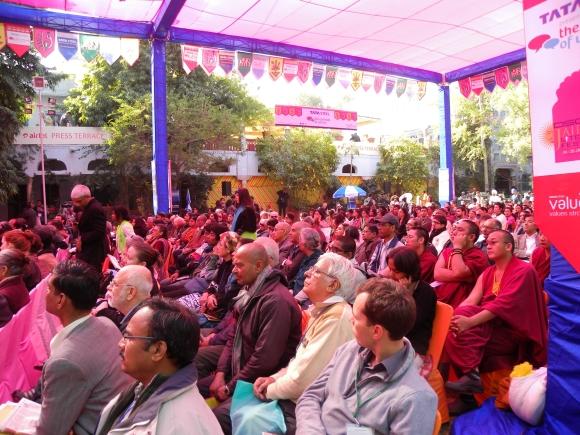
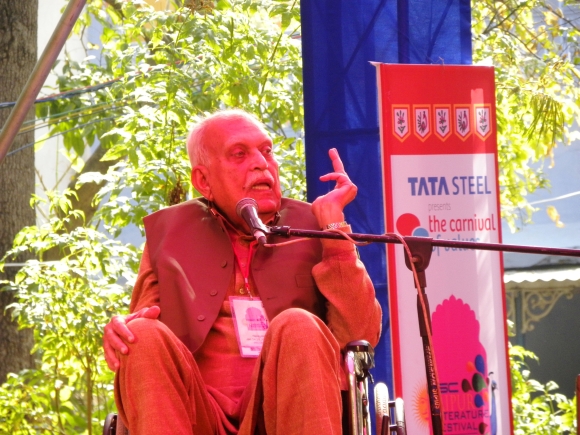
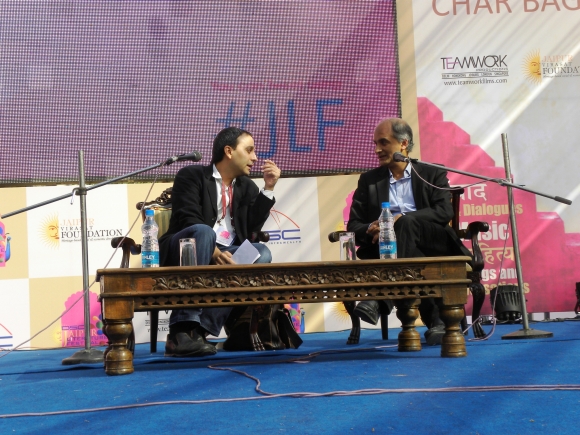
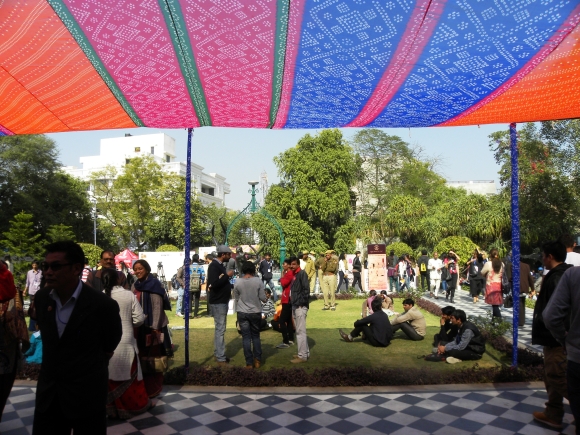
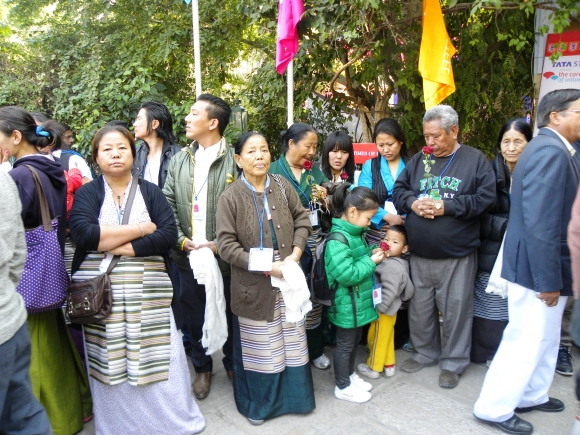
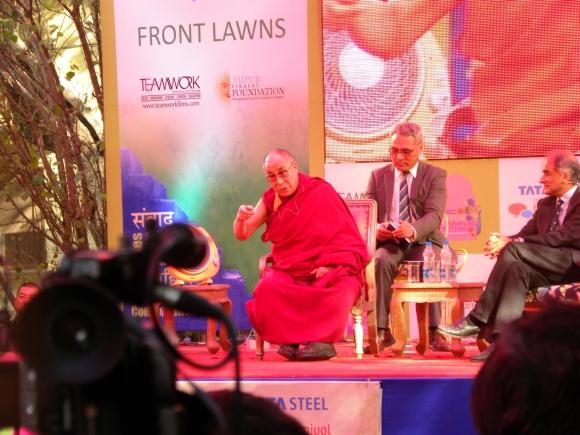
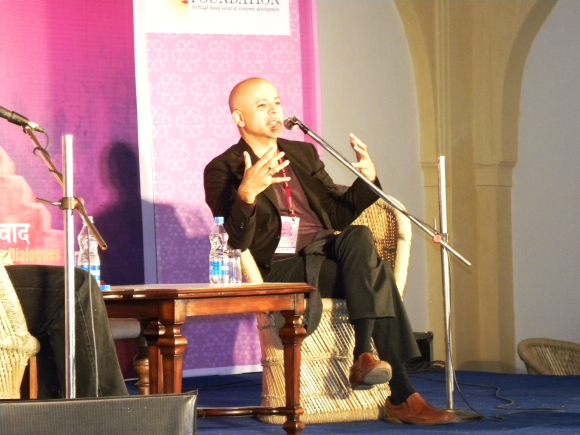
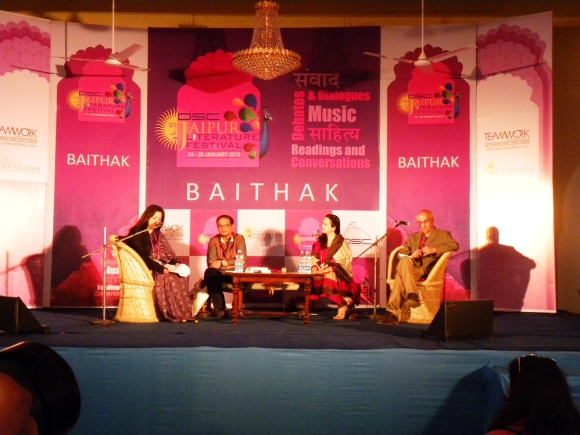
article